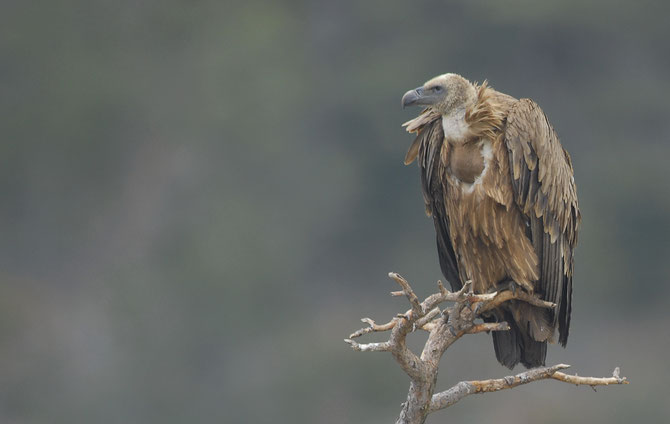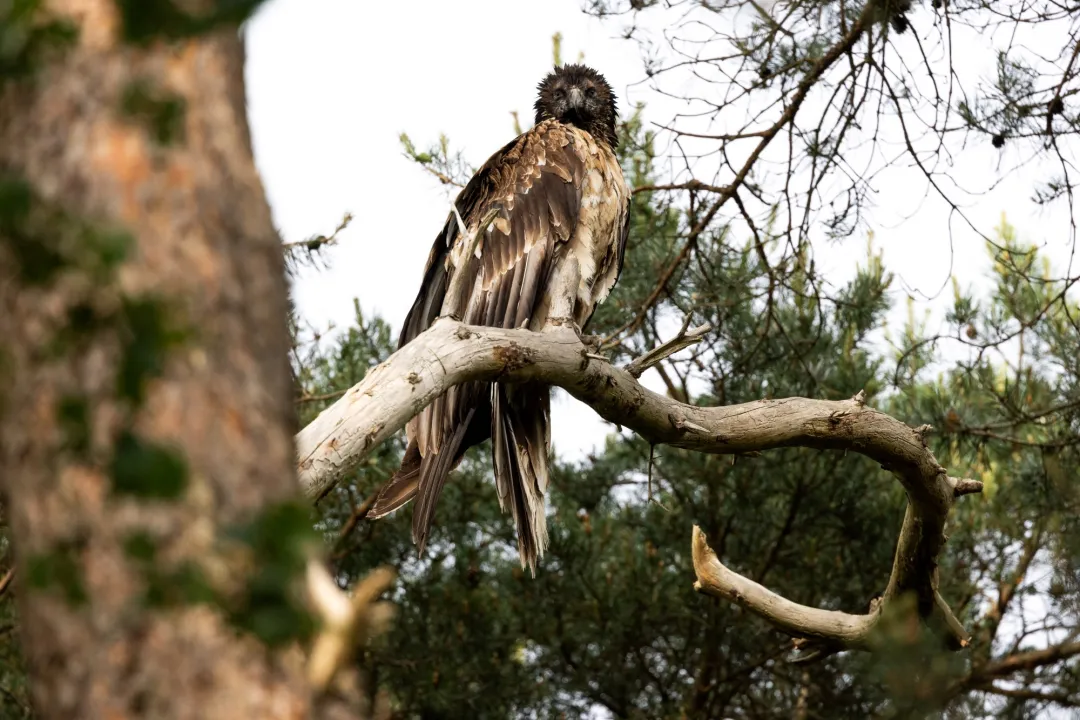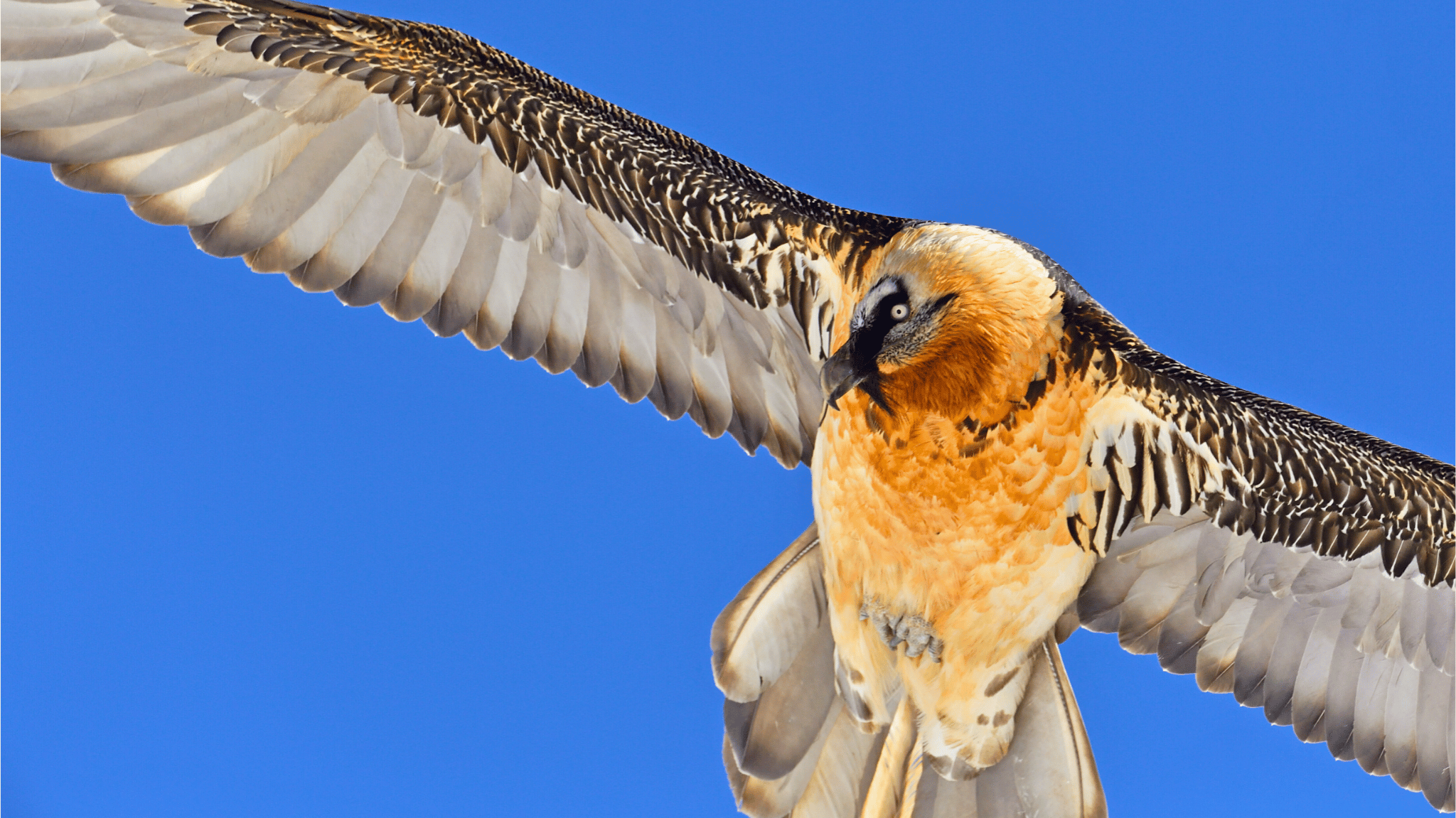
Vultures tend to be very sensitive to disturbance, especially during the breeding period. A recent incident proved once again how destructive human disturbance can be to vultures. A helicopter approached an important Griffon Vulture colony in Serbia, and as a result, at least six chicks got scared and jumped from their nest into the lake. People managed to save some of them, but it seems that others did not make it.
Helicopter disturbance kills Griffon Vulture chicks
In early August, a helicopter flew around a Griffon Vulture colony in Uvac Special Nature Reserve, Serbia, during a critical period, when the chicks were almost ready to take their first flights. Due to this, at least six chicks jumped from their nests into the lake below. Out of these, three were rescued thanks to guards and locals are currently in recovery while the other three likely drowned. The three birds being rehabilitated are doing well and will be released back to nature once they make a recovery.This event is unacceptable, as there are nature laws in place to protect this and other species, and they must be followed.
Nature laws in Serbia need to be followed
There are nature laws and regulations, issued by the Ministry of Environmental Protection of Serbia, and the Institute for Nature Protection of Serbia issues opinions and permissions for activities, in accordance with these nature laws, which are carried out in protected areas or which might affect protected species. The relevant laws prohibit low helicopter or other aircraft flights near sensitive natural areas, like Griffon Vulture colonies. Due to non-compliance and neglect of regulations, this disastrous event led to the death of Griffon Vulture chicks. This species is rare and strictly protected in Serbia, and this incident caused considerable damage to the natural heritage of the country. To prevent flights that can harm nature and wildlife, since 2010, the Institute for Nature Protection of Serbia provides data to the Directorate of Civil Aviation about bird movements and concentrations during migration as well as a map of important areas for birds in Serbia, where it is clearly indicated that part of south-western Serbia is an area with significant concentrations of ‘sensitive fauna.’ Furthermore, for all aviation activities above protected nature areas, it is necessary to contact the Institute for Nature Protection of Serbia for the possibility of authorization, which did not happen in this case.
State laws need to be followed, and the relevant governmental authorities need to be consulted whenever exercising such activities in protected areas, especially those that hold breeding populations of large soaring birds like the Griffon Vultures, in order to avoid such tragic accidents.
This is a widespread issue, not only present in Serbia, but it can be successfully mitigated like in the case of the Bearded Vulture in the Alps and the Pyrenees.
Tackling the threat of aircraft disturbance near vulture areas
The Alps and the Pyrenees can be viewed as successful case studies when it comes to the mitigation of human disturbance, in particular from aircrafts flying near important vulture areas. From establishing protection zones around nests of Bearded Vultures to raising awareness about the issue to military and civil pilots, disturbance significantly reduced in these regions, leading to higher breeding success of the species.
In the French Pyrenees, for instance, military helicopters, mountain rescue teams and helicopters hired by the electricity utilities to verify the mountain dams caused a lot of disturbance to the species when flying near their nests. Helicopter overflights near Bearded Vulture territories caused around 1 to 3 breeding failures per year, which is between 10 to 30 per cent of the total breeding in the area. LPO and partners tackled this by sensitizing pilots, including from the military, giving them all of the locations of the Bearded Vulture nests, and asking them not to fly there. They also constrained other activities like climbing and paragliding to reduce disturbance of nests, which are respected and followed.
Aircraft disturbance is an issue that can and must be mitigated to secure the safety of vultures and other wildlife. Regulations should be developed and strictly regulated, and relevant stakeholders should be targeted and sensitized about the importance of obliging to these laws.
UPDATE 30 October 2020
Optimistic news from Serbia — last week the authorities banned all flights of helicopters, small planes and drones above all the Griffon Vulture colonies in the country.
The Institute of Nature Conservation of Serbia published the following on 30 October 2020:
The Civil Aviation Directorate, according to Article 13, paragraph 2 of the Law on Air Traffic, and with the consent of the Ministry of Defense and the Ministry of Internal Affairs, has passed an Order on conditionally prohibited flight zones LY R10 Uvac, LY R11 Trešnjica and LY R12 Mileševka.
This Order pertains to conditionally prohibited flight zones in griffon vulture habitats within the Special Nature Reserves “Uvac”, “Trešnjica River Gorge” and “Mileševka River Gorge”.



